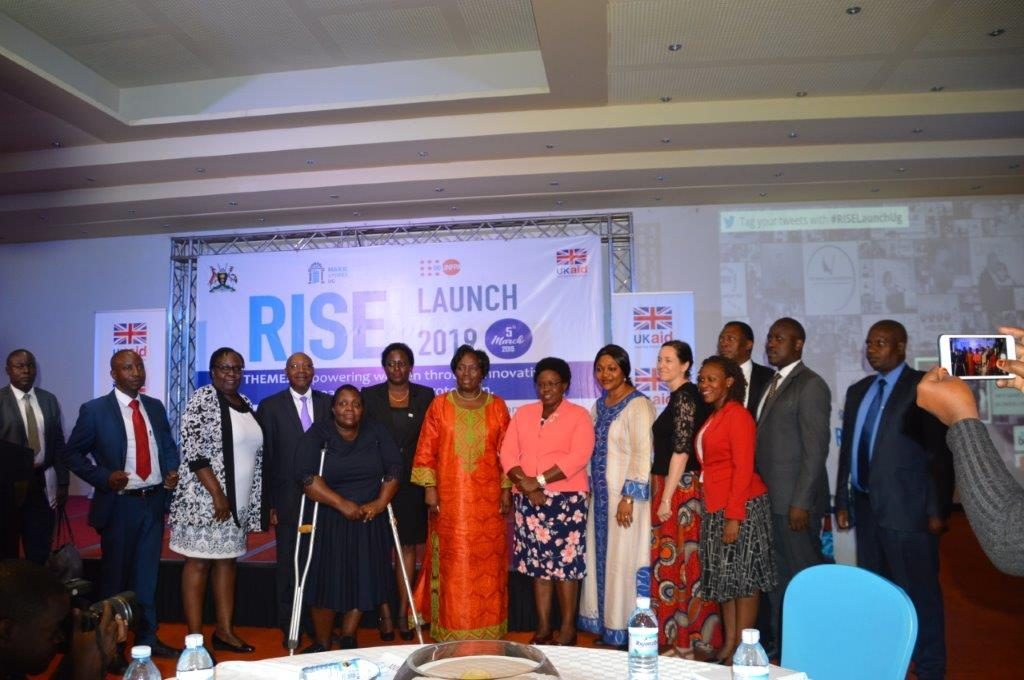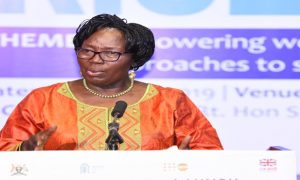
The UK Department for International Development (DFID) have today marked the launch of a new programme to support the Government of Uganda’s effort to address the population challenge and improve family planning uptake. The programme will be implemented by Marie Stopes International (MSI) and UNFPA.
Over the next five years, the UK government will invest £38 million under the flagship programme “Reducing high fertility rates and Improving SExual reproductive health outcomes in Uganda (RISE)”. This is in addition to UK government support of £10.91 million, through the International Planned Parenthood Federation and Reproductive Health Uganda.
The RISE program will support the implementation of the Uganda Family Planning Costed Implementation Plan (FP-CIP) 2015-2020 to accelerate the uptake of modern contraception and reduce the negative health, social and economic consequences of high fertility rates.
The RISE strategic interventions will; 1-implement a social behaviour change communication strategy to create demand and behaviour change; 2- support service provision at outreach and voucher components in the private sector to complement static services for hard-to-reach communities; 3– ensure strengthening of Health Systems to address gaps in the availability of FP commodities; and 4- support policy formulation and advocacy to promote positive leadership on family planning issues.
Coverage (6 regions to be updated): Central 1 (12 districts), Central 2 (10 districts), East Central (12 districts), Eastern (21 districts), Karamoja (7 districts), Western (13 districts).
MSI will implement components 1-3, through leading a consortium with collective expertise: MS-Ug on FP service delivery; FHI360 on social and behaviour change communication (SBCC); Population Media Center (PMC) on entertainment-education with pioneer radio dramas for Uganda; Reach a Hand Uganda RAHU on youth-led provision and community mobilization of youth; and Makerere School of Public Health lead on research, monitoring and evaluation for evidence-based practice and implementation.
UNFPA has been implementing component 4 of the RISE programme since March 2018 and has made progress in the areas of; 9 districts supported to complete the development of district FP-costed implementation plans; consensus building in the health sector for task sharing; conducted an ethnographic study on teenage pregnancy in Uganda; supported the development of Sexuality education operational guidelines; have conducted an Adolescent health landscaping exercise to inform the review of the Adolescent health policy; and developed guidelines and tools on harnessing the demographic dividend.
Speaking at the launch, the DFID Head of Office, Francesca Stidston said, “Recent results of the Uganda Demographic Health Survey, shows that the country is making good progress in increasing access to modern contraceptives. This success would not have been possible if not for the support from the GoU. I therefore commend the role of the Government in achieving these results including the participation of His Excellency the President at the 2012 family planning summit in London and the Honourable Minister of Health at the follow-up London summit in the summer of 2017. Our collective challenge now is to make good on those commitments and to translate good intention into results. In doing so, we need to think beyond narrow, sector specific strategies and understand how the whole of Government and its partners can and should contribute to unleashing a demographic dividend in Uganda, support to family planning being a key pillar.”




























